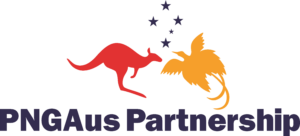November 4-9, 2024
The International Food Policy Research Institute (IFPRI) and the Fresh Produce Development Agency (FPDA), in collaboration with the Western Province Partnership program of Abt Associates, recently conducted an intensive six-day training program on food price data collection from Nov 4-9,2024, in Daru town, South Fly district, Western Province. Seven Rangers from Inloc, one of six implementing branches under Western partnership program, attended to gain price data collection skills led by Mekamu Jemal of IFPRI, Glen Hayoge of FPDA and with additional support from Allan Baining, FPDA data collector from Kokopo.
Objectives and Overview
The primary objective of this training was to provide the Rangers with the necessary skills and knowledge of price data collection and to understand the significance of food price monitoring in relation to food security and research activities.
The two-day in-house session, followed by four days of intensive field work, equipped the participants with the knowledge and practical experience needed to effectively collect food price in three selected markets within the district, namely Daru, Mabaduan and Morehead. The training provided practical examples using the interactive Food Price Monitoring tool published on the IFPRI website, which utilizes data collected over the past decade by FPDA. The data collected from these markets will eventually be integrated with FPDA’s data on the Kobo ToolBox platform.
Introduction to FPDA data and analysis
The first day focused on familiarizing the Rangers with the nature of price data through IFPRI food price monitoring interactive tool. This included detailed sessions on data analysis and interpretation, supported by three bulletins (quarter 3, quarter 2 and quarter 1) published in 2024. These bulletins highlighted price trends for important food groups (staple, fruits and green & leafy vegetable) across five major markets in Papua New Guinea (PNG) such as Goroka, Banz, Lae, Kokopo and Port Moresby. The Rangers quickly recognized the potential of time series data to analyze food prices from multiple perspectives.
The training then explored into FPDA’s extensive experience in collecting long-term data, which now serves as a core source of price data for Papua New Guinea (PNG). This session outlined FPDA’s data collection procedures, quality, and consistency. The insights gained from FPDA’s journey provided a valuable foundation for the South Fly team to build upon, particularly regarding the listing of crops to be collected and the working procedures and protocols to be followed according to the local situation.
Data Collection Techniques
The second day was dedicated to learning data collection techniques, including the procedures involved and the materials needed. The Rangers trained in two primary methods: collecting prices by purchasing items and collecting both price and weight at the market. This session also covered the do’s and don’ts of data collection, to well prepare the Rangers for fieldwork.
Field Work: Testing and customizing techniques
On the first practical day at Daru market, the Rangers tested data collection by purchasing listed produce directly from vendors. This involved carefully labeling each of the three samples per crop/produce with sample numbers and prices, followed by placing each sample in a separate bag. The produce was then brought back to the office, where Rangers were introduced to weight measurement techniques using a hanging digital scale, helping them become familiar with the accurate weighing process.
The second practical day at Daru market focused on collecting both price and weight information directly from vendors. Prior to collecting this data, Rangers communicated with vendors to explain the survey’s objectives and obtain permission to weigh their products. This approach, based on respectful and transparent communication, was essential for building trust and ensuring future cooperation. In some cases, agreements were made to offer a reasonable incentive as a goodwill gesture, allowing data collection to proceed without disrupting the vendors' usual business activities.
Following these two days of practical data collection at Daru, the team evaluated the advantages and disadvantages of each technique, considering factors such as feasibility, time, and cost. This review led to the decision that collecting both price and weight directly at the market, combined with additional data, was the most efficient approach. During this evaluation, adjustments were also made to finalize the list of most commonly purchased items in the market, the data collection sheet and the KoboToolbox form to reflect the changes.
On the final day of field practice, the team traveled to Mabaduan market, where Rangers applied the techniques, they had tested in Daru. The data collection process in Mabaduan ran smoothly and efficiently, affirming the effectiveness of the refined approach.
Data entry and analysis
After each field visit, the Rangers returned to the training venue to enter the collected data using the Kobo Collect app on tablets. These sessions were crucial for learning data entry procedures using tablet, identifying common mistakes, and troubleshooting issues related to Kobo Collect. The Rangers were delighted to see their data integrated with the existing FPDA data and displayed on an interactive dashboard. This allowed for brief comparisons of price points across FPDA’s five existing markets: Port Moresby, Lae, Kokopo, Banz, and Goroka.
The Rangers concluded the training with a better understanding of the importance of accurate and consistent data collection for food price monitoring. They are now equipped to contribute effectively to ongoing food security research and initiatives.
This training event marked a significant step forward in improving the capacity of data collectors in Papua New Guinea. The collaboration between IFPRI, FPDA, and the Western Province Partnership Program and the Government of PNG, has set a strong foundation for future efforts in food price monitoring and data management across the selected markets in the country.
For more information on the Food Price Monitoring tool and related research activities, please visit the IFPRI and PNG-IFPRI websites.

